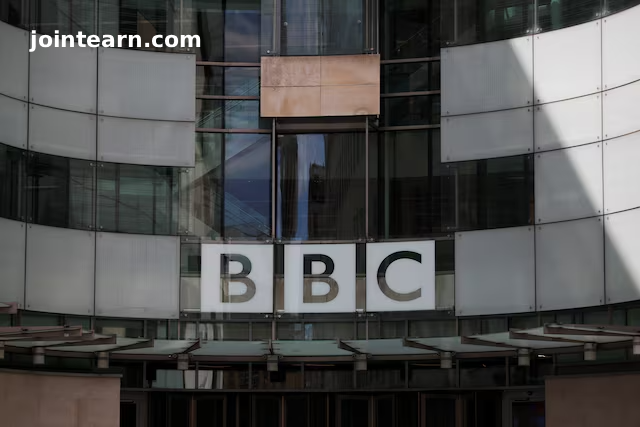
U.S. President Donald Trump announced on Friday that he plans to sue the BBC for up to $5 billion following the British broadcaster’s admission that it wrongly edited a video of a speech he delivered. The announcement comes after the BBC issued a formal apology, calling the edit an “error of judgement,” but maintaining that there is no legal basis for Trump’s defamation claim.
Background of the Dispute
The controversy centers on a BBC “Panorama” documentary that spliced together excerpts from Trump’s speech on January 6, 2021, the day his supporters stormed the U.S. Capitol. The edited version allegedly made it appear that Trump was inciting the riot. Trump and his legal team have described the edit as false, defamatory, and damaging to his reputation, asserting that it caused “overwhelming reputational and financial harm.”
According to Trump, the BBC’s apology is insufficient. Speaking to reporters aboard Air Force One, he stated:
“I made a beautiful statement, and they made it into a not beautiful statement. Fake news was a great term, except it’s not strong enough. This is beyond fake, this is corrupt.”
Trump also confirmed that he had not yet spoken with British Prime Minister Keir Starmer about the matter but plans to call him, noting that Starmer had expressed embarrassment over the incident.
Legal Demands and Potential Settlement
Trump’s lawyers initially set a Friday deadline for the BBC to retract the documentary or face a lawsuit for at least $1 billion, along with a public apology and compensation. The former president indicated he plans to pursue a lawsuit in the range of $1 billion to $5 billion.
The BBC has acknowledged the editing was an “error of judgement” but has refused to rebroadcast the documentary and rejected the defamation claim. BBC Chair Samir Shah personally apologized to the White House, and British Culture Minister Lisa Nandy described the apology as “right and necessary.”
Crisis at the BBC
The row has escalated into the BBC’s most serious crisis in decades. Two senior executives—Director General Tim Davie and Head of News Deborah Turness—resigned amid accusations of bias and editorial failures.
Prime Minister Keir Starmer stressed the importance of maintaining a “strong and independent BBC” while urging the broadcaster to reform its internal processes. The BBC, funded largely by a compulsory license fee, now faces scrutiny over whether taxpayer money could be used to settle Trump’s claim, sparking public debate.
Broader Implications
The dispute highlights ongoing tensions between media outlets and public figures, particularly regarding editorial responsibility and the ethics of news editing. Analysts note that the case could have far-reaching implications for journalistic standards and the accountability of publicly funded broadcasters in the UK and beyond.
As Trump prepares for legal action, the situation underscores the growing scrutiny of media practices, with both domestic and international consequences for one of the world’s most respected news organizations.
Conclusion
The potential lawsuit by Donald Trump against the BBC represents a landmark moment in media law and political accountability. With billions of dollars at stake and the BBC’s credibility under question, the coming weeks will be critical in determining the legal and reputational fallout for both the broadcaster and the former U.S. president.


Leave a Reply